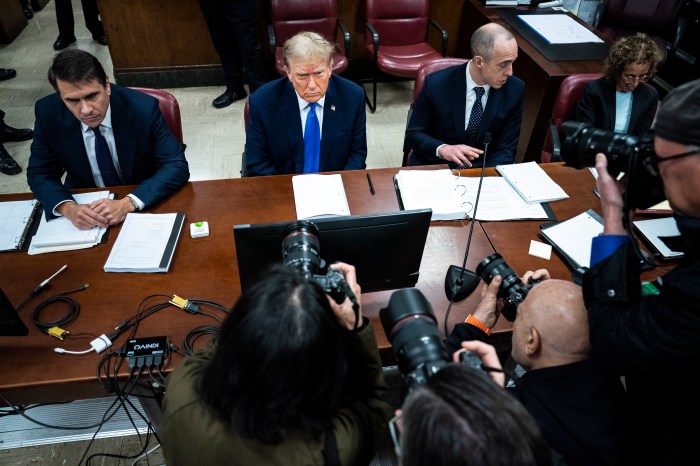With less than a month before the start of the 2010 Winter Games, the hard slogging has just begun for the organizers of Vancouver’s Olympics.
VANOC CEO John Furlong said even though his team has been working for years — completing venues, raising funds and puzzling through logistical challenges — the real work has just gotten underway.
“We have a lot to do,” said Furlong, during a press conference yesterday to mark the one-month countdown to the opening ceremonies.
“People are excited and happy and they sort of feel that we’re almost home. We’re not home. We have three or four weeks of significant work to do.”
Among the tasks outstanding is completing the temporary structures at venues and decorating venues with the blue-and-green “look of the Games” overlay.
The Main Press Centre, which will be home to thousands of journalists during the Games, opened yesterday at a renovated Canada Place.
The medals, Furlong said, have been inspected and are on their way to Vancouver. The podiums are almost finished and costumes for the medal ceremonies are completed and will be unveiled in the coming days.
Almost 100,000 people, including volunteers and performers, need to be accredited ahead of the Games.
Some key dates include:
• Jan. 22, the start of the Cultural Olympiad.
• Jan. 25, Vancouver International Airport starts to welcome Olympic visitors.
• Jan. 29, will see the first Olympians at the Athletes’ Village.
• Feb. 4, venues will open for training.
The Olympic torch relay, which has been blazing its way toward Vancouver, returns to British Columbia on Jan. 21.
It hits Surrey on Feb. 8, Richmond on Feb. 9 and West Vancouver on Feb. 10. On the Feb. 11 and 12 the torch crisscrosses through Vancouver, culminating in the lighting of the Olympic cauldron during the opening ceremonies.
Furlong, who was named CEO of VANOC in 2004, said the greatest challenge his team has faced was the world economy “going over a cliff.”
“I think it made a better organization out of this one,” said Furlong, of the economic downturn. “It made our team sharper and more focused. It made us more resilient and more creative.”
















